Online reservation system in Korea is set up in such a way that it can be an absolute ordeal for foreign visitors. All kinds of online payment to reserve things—tickets for a show, baseball games and whatnot—require that you have an account with a ticket reservation company like Ticketmaster and you simply cannot do it without a valid mobile Korean phone number registered to your name. And you can’t get a mobile phone number unless you’re registered with the Korean Immigration Office—another painful process of having to live in Korea for more than 6 contiguous months and et cetera…
So, it was a very pleasant surprise to be able to easily reserve a rental car through Lotte Rental Car. About 50 bucks per day for a mid-size car (Kia K3), including full insurance, no mileage limit, navigation installed, super friendly staff… (I’m in no way related to the company, obviously.) I would recommend that you find a local branch office and talk to them in person if it is your first time renting a car in Korea. Passport, your local Driver’s License, and International Driving Permit (in my case, issued by the AAA) are the documents you need to take.
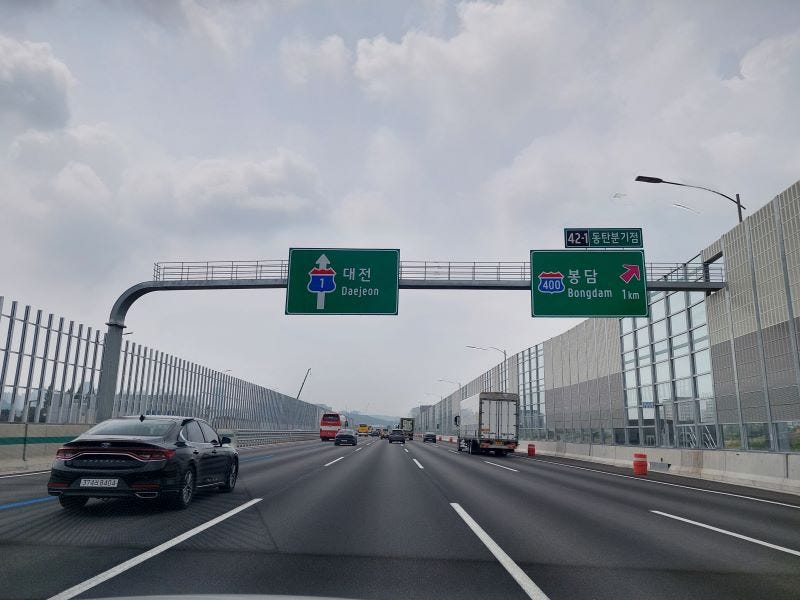
Driving in Korea used to be an adventure but I’ve learned that it’s gotten a lot better. Roads are in excellent condition, drivers are nicer and obey the law (although cab drivers still think they’re above it), and the nightmarish traffic jams on the expressway (all toll roads—there are no “free”ways in Korea) have dissipated quite a bit. And the navigation system is amazing—it even tells you where the speed guns and other traffic violation cameras are located. (But you can’t listen to a 4-minute song without getting interrupted—it won’t shut up.) I didn’t check it out personally but the navigation AI can be turned on to English, I believe.
Our final destination was Busan, about 250 miles (~ 400km) away and the second largest city on the southeastern corner of the peninsula. I say Busan being the “final” destination because I first wanted to stop by my old hometown Geochang (거창, I know… it’s spelled like jio-chang but it’s pronounced “guh-chang”) on the way. My last time
in my and my ancestors’ hometown of 거창 was 10 years ago to visit my grandfather who was 102 years old at the time. Before then, I hadn’t been there for 22 years. And now, I was taking my own daughters—born and raised in Los Angeles—there.

Before coming to Korea about 3 weeks ago, I had told my dad my plans about it and I could see that a lot was going through his mind. To be honest, I started getting a little emotional also just thinking about it. A small town not many Koreans are familiar with, even though the whole country is about 25% the size of California.
The house my dad grew up in is the same house that I grew up in—to be able to take my own kids there and show it to them! But as fate would have it, the County Office of Geochang in re-organizing the town layout about 25 years ago had cut the house in half (literally!) and built a small road through it. Only a small piece of the house remains but it was still there, and no, I didn’t knock.

My greatest fear was that this would be my first and last time taking the kids to my hometown—Shakespearean tragedy about the potential finality of something. The most incredible thing happened as we were walking through the town—my kids loved it!! The feel of a small town, yet all the conveniences of a big city, the franchise restaurants, a Ping golf club store (of all things), and the softest Korean sugar-coated donuts (꽈배기) we’ve ever had and the most hospitable cafe owner, with pretty damned good coffee, speaking in unmistakable Geochang accent (like the Southern drawl in US).

I almost came to tears when my youngest, who will be a Stanford freshman in about a month, said, “appa, if there was a large university here in town, I would’ve seriously considered going there.” Nope, that’s not gonna happen. My second daughter chimed in, “I would love to live here for about 4 months.” Why 4 months? “Go through different seasons.” I knew then, that this would NOT be the last time that we were going to visit 거창. The one person who would’ve appreciated this more than I, my dad should have been there with me…
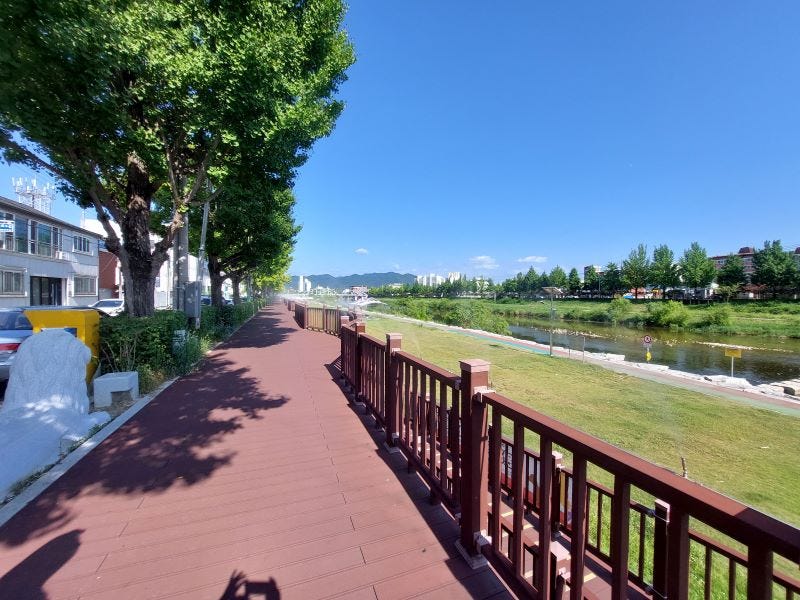
On to Busan. I’d been to Busan twice in my life very briefly—like a few hours brief—each time, so I didn’t really get to see the city. Two nights in Haeundae (해운대) at an oceanfront hotel should be good, I thought. Wrong. In hindsight, the trip should’ve been at least 4 or 5 nights.
So much food, many bars and eateries including an authentic-looking Irish pub, a taco joint, unbelievable beach atmosphere, so many domestic and foreign tourists. Not to mention the digital nomads right on the beach and the nearby cafes! The Haeundae beach at night looked so exotic that I didn’t think I was in Korea any more.
I woke up early next morning to take a stroll around the neighborhood and saw this on the wall of a very nice looking hotel.
I get the meaning but a very unfortunate abbreviation indeed. Right across the street from this hotel, there is a huge Rolls Royce dealer flanked by a Maserati and a Ferrari dealer. What the hell? What is this town?
Busan is a city that served as a temporary residence for all the displaced refugees and secondary capital during the Korean War. Geographically speaking, it’s not well-suited for a large population—it’s mostly made up of steep hills and small portion of flat lands. In a lot of ways, it looks like Hong Kong, as we shall see soon.
But, as you might well imagine, Busan has amazing seafood. After we had probably the best tteok-bok-ki (떡볶이) in our recent memory at a local traditional market, we paid a visit to the nearby fresh fish market called Jagalchi (자갈치) and ordered two types of snapper hwae (회, “sashimi” is Japanese word) and a plate of sea urchin (or “uni” in Japanese). I’m sorry but Korean and Japanese fish just taste better.
The late night yacht ride gave us a fantastic view of the beautiful Busan coast. We had front and center seats on the yacht—and when the staff started shooting off fireworks right in front of us, it did make us a little nervous.
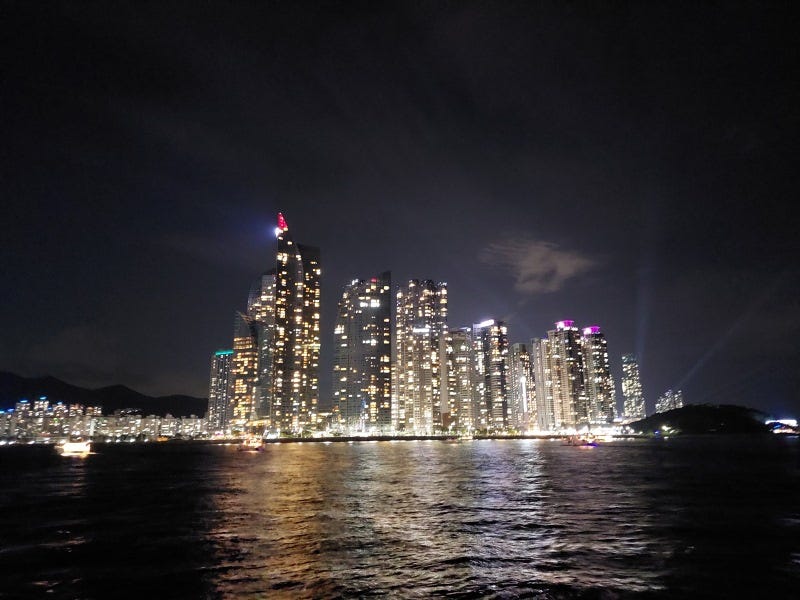
On the way back to Seoul, we stopped by a sleepy fishing town of Ki-jang (기장), a port known for its anchovies and a cafe known for its view.
Driving in Korea is very straight-forward, especially if you’re from the US. The laws are similar and the rest stops called 휴게소 along the expressways (every 20 miles or so) can be tourist destinations unto themselves, with their own local delicacies and a wide variety of snacks and drinks. The best thing about it is the restrooms—they’re lab-worthy clean! The Korean sense of humor that also serves a practical purpose—all the urinals in Korea have this little fly printed on the porcelain—men naturally aim for it and reportedly there’s been a dramatic decrease in the spillage on to the floor. Go figure.
But one electronic sign on the expressway official billboard kept bothering me. It said, “Drive 2 hours, rest for 15 minutes. If you don’t, get fined 500,000 ~ 1,000,000 won ($375 ~ $700).” Is this a real law? What kind of authoritarian bullshit is this? For someone like me, used to driving 5, 6 hours straight on the freeway, this was the weirdest part. All in all, extremely happy that we took this trip.

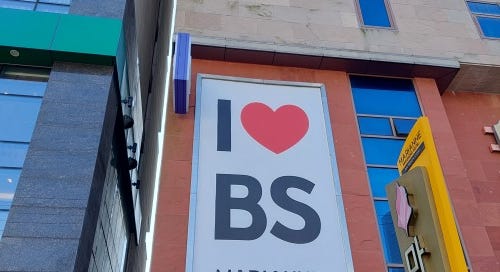




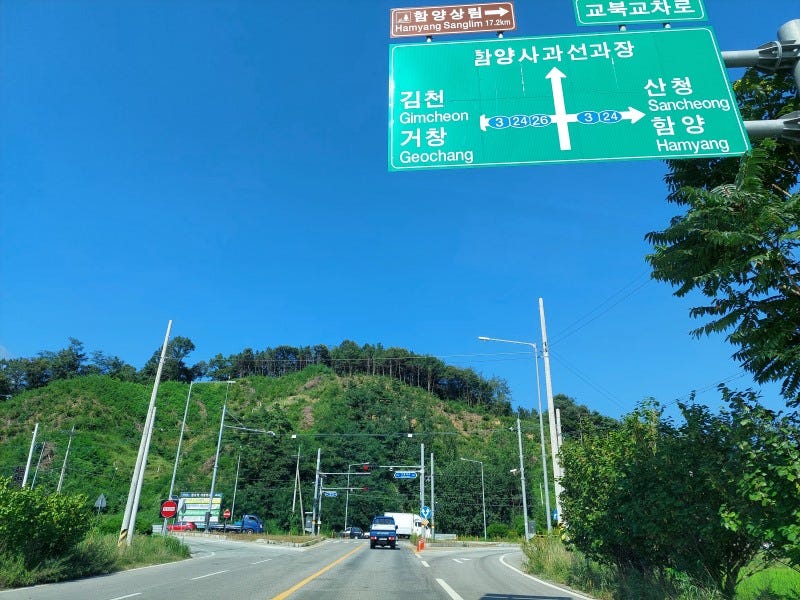
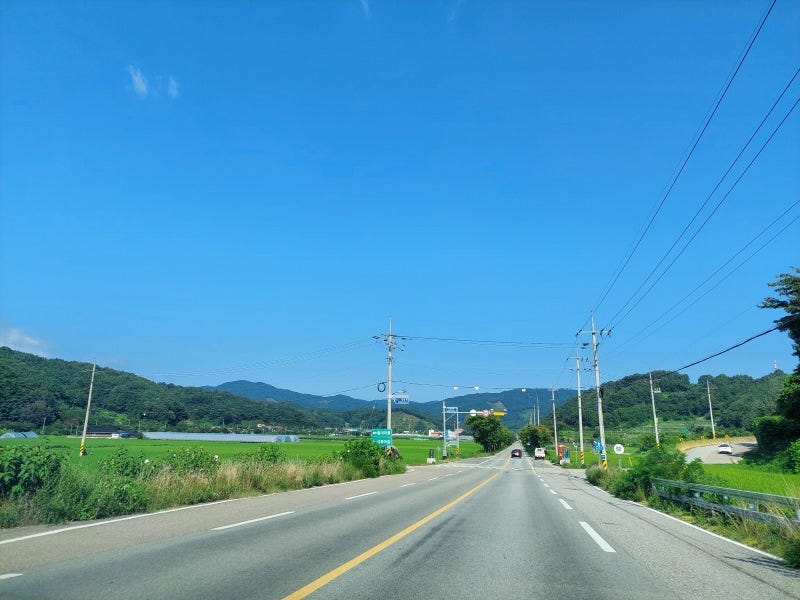
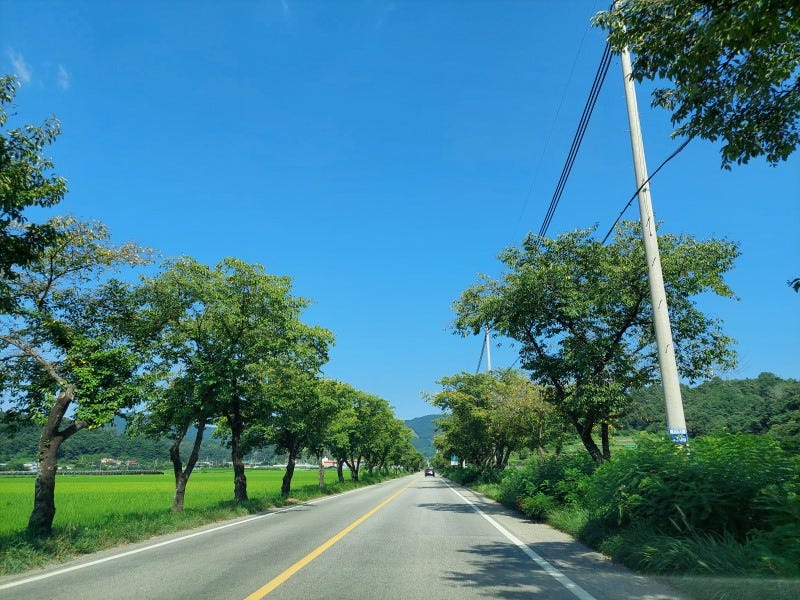
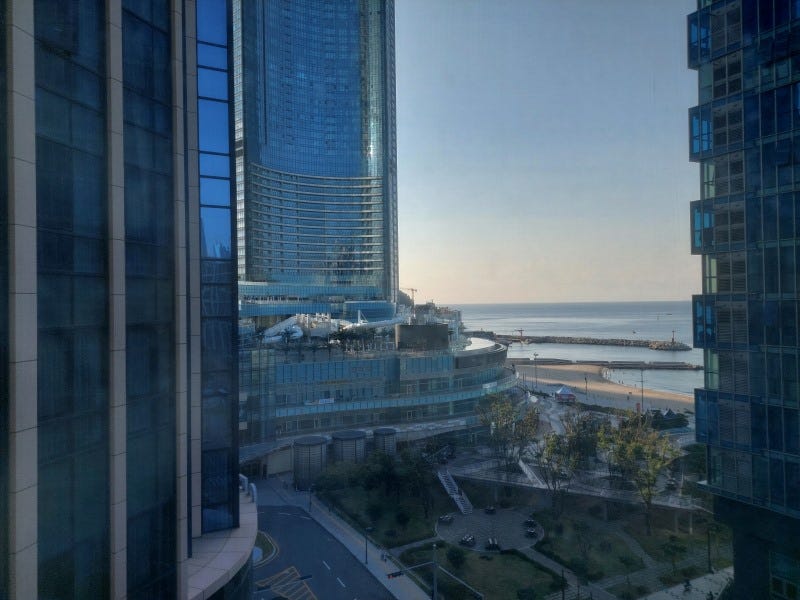
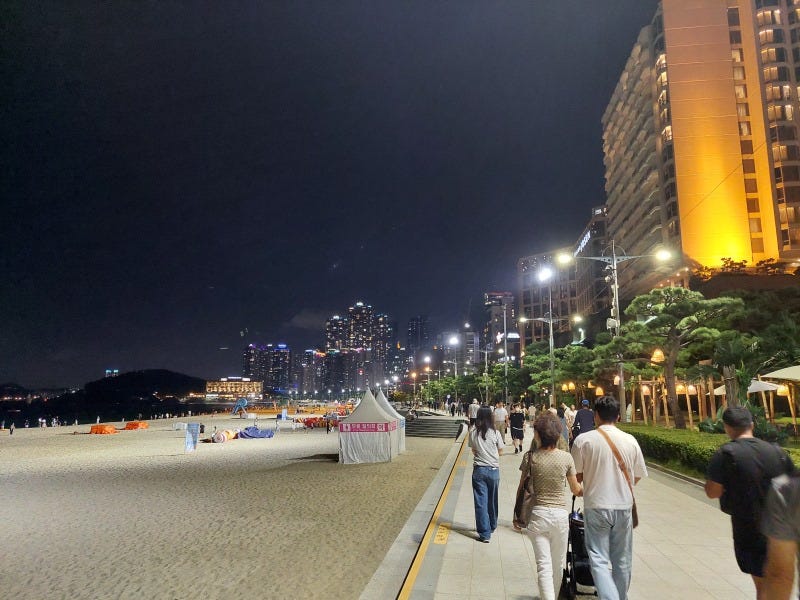
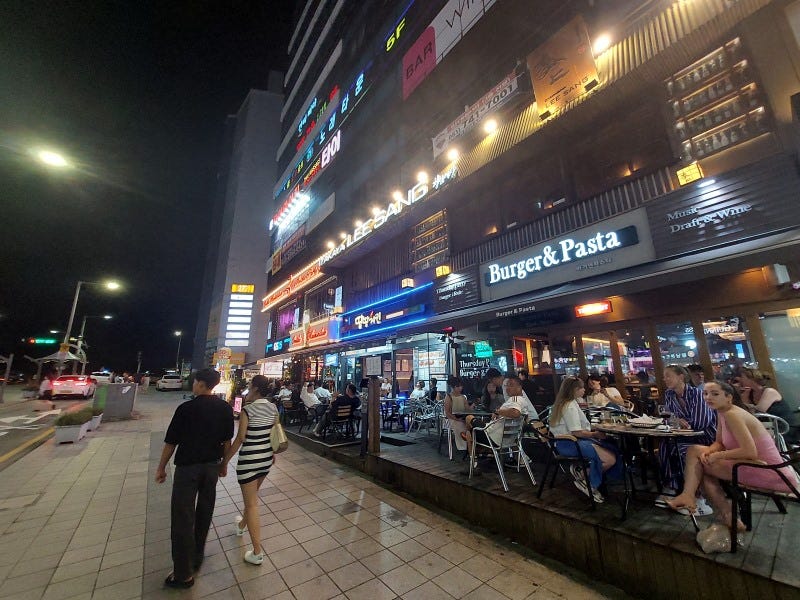
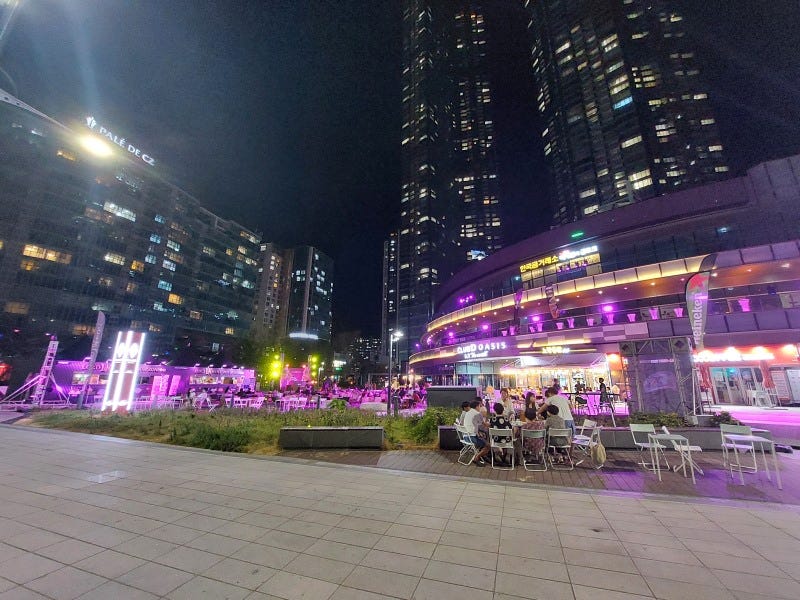

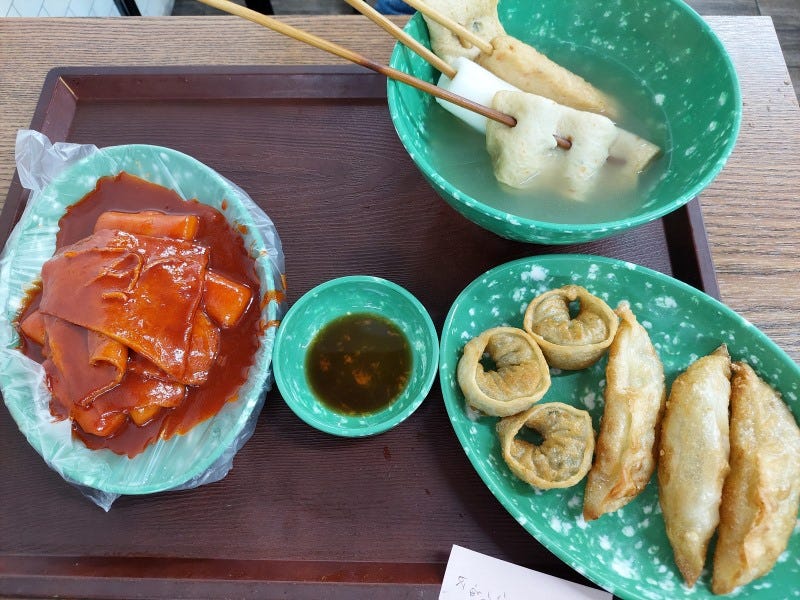
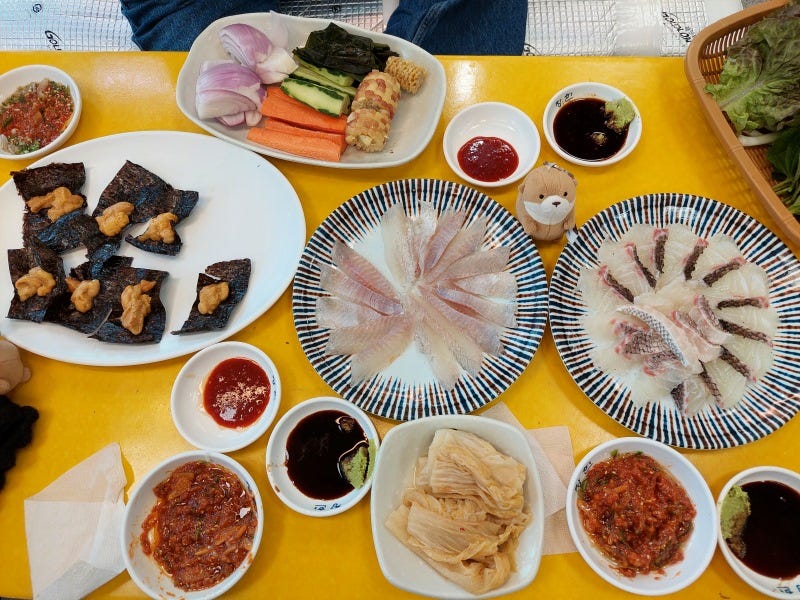
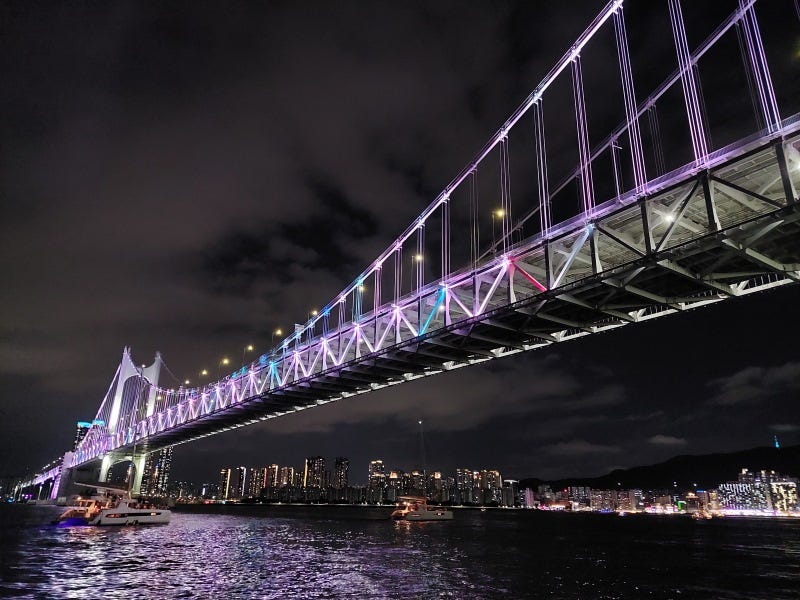




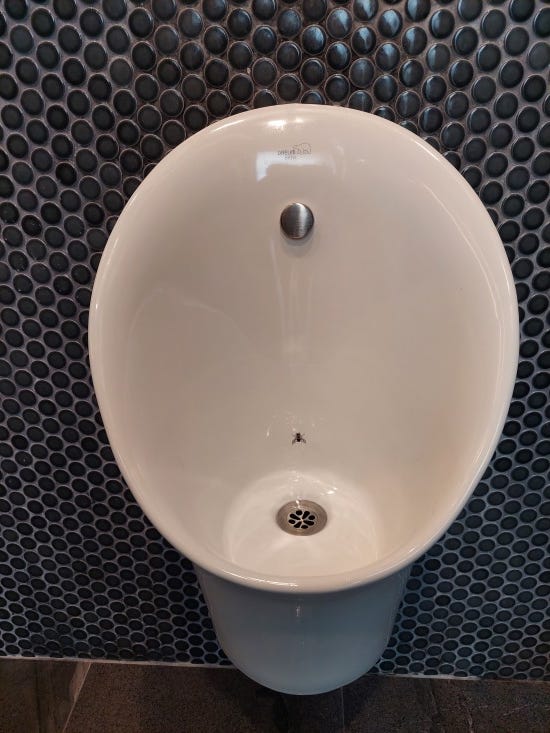
Great that you got to show your hometown to your kids. Looks like a great trip! I was in Busan last October and loved it. The seafood there is amazing. The rest stops in Korea blew my mind...I couldn't believe how great the food was and surrounded by mountains.
So happy that your family loved the visit to your hometown. Speaking of Korean restrooms, I was in Seoul in mid-July and was amused to see a sign in the ladies' room asking us not to step on the toilet seat.